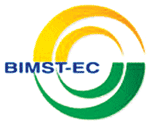 Last year, Nepal signed three prominent trade agreements: World Trade Organisation (WTO), South Asian Free Trade Agreement (SAFTA) and the Bangladesh, India, Myanmar, Sri Lanka and Thailand Economic Cooperation (BIMST-EC). Prime Minister Sher Bahadur Deuba is in Bangkok to lead the Nepali delegation to the first summit of this regional trade grouping.
Last year, Nepal signed three prominent trade agreements: World Trade Organisation (WTO), South Asian Free Trade Agreement (SAFTA) and the Bangladesh, India, Myanmar, Sri Lanka and Thailand Economic Cooperation (BIMST-EC). Prime Minister Sher Bahadur Deuba is in Bangkok to lead the Nepali delegation to the first summit of this regional trade grouping.
All three agreements hope to expand trade, infuse technology and promote investment not for its own sake but for overall economic development in the region. Thus, the issues of trade expansion in any agreement should not be dealt in isolation but to complement each other and in the broader perspectives of development needs.
The Framework Agreement of the BIMST-EC Free Trade area seeks to initiate trade liberalisation through fast and normal tracks after negotiations. Considering the existing composition of Nepal's exports to the region, such an approach may not increase market access immediately.
A better approach could be sectoral and sub-sectoral initiatives for elimination of tariffs and non-tariff barriers in order to expedite liberalisation process. For example, Nepal can benefit if an initiative to eliminate tariffs on woolen products is traded off with agriculture machinery/automobile parts. Thailand would be interested to get tariffs eliminated on agriculture machinery. This approach would be specifically beneficial for Nepal to gain market access in Burma, where Nepal's export is nil. We should try having such initiatives at a regional level, and if that fails, pursue them bilaterally.
Landlocked Nepal has high transit costs, accounting for 15 percent of total expenses. As members of the regional group, non-contiguous simplification and harmonisation of customs procedures and expanded transit facilities for 'transit in goods' would go a long way in reducing transport cost of intraregional trade.
If a container of the 'goods in transit', once sealed, can move freely without hassles, there will be significant reduction in 'invisible' costs. Furthermore, direct transport costs are reduced if cooperation can be extended to develop transport infrastructure and the shortest route to link member countries, including port facilities.
 The agreement states that the depth and scope of liberalisation of trade will go beyond those undertaken by the parties under the General Agreement in Trade in Services (GATS) of WTO. Nepal, being a WTO member through an accession process, has made commitments to more sectors than incumbent members of the region. The language of the agreement implies an unequal baseline among members for services sector liberalisation.
The agreement states that the depth and scope of liberalisation of trade will go beyond those undertaken by the parties under the General Agreement in Trade in Services (GATS) of WTO. Nepal, being a WTO member through an accession process, has made commitments to more sectors than incumbent members of the region. The language of the agreement implies an unequal baseline among members for services sector liberalisation.
For example, the baseline for Bangladesh is tourism and telecommunication sectors only, whereas for Nepal there 70 sub-sectors and liberalisation will be beyond these sub-sectors. Nepal should strive make sure the liberalisation process is smooth and applies uniformly to all areas. Nepal can garner support from Bhutan, which is undergoing the WTO accession process and Thailand which has made significant concessions in the services sector under the pressure of key players in WTO.
Information Technology is conspicuous in its absence in the list of the areas identified for cooperation in the Agreement. Experience has shown IT plays a significant role not only in the expansion of trade and investment, but also in lowering the cost of doing business and contributing to economic and social development. Nepal should propose the inclusion of this sector for meaningful cooperation and even offer to host a Regional Centre for Information and Technology.
Nepal's export/import ratio with the BIMST region is lopsided. Nepal exported Rs 55 million worth of good to Thailand and imported Rs 3.3 billion worth in 2001/02. The issue of revenue compensation has already been rejected in previous meetings. We need to re-mould our approach and require compensation for adjusting our displaced industry and workers from the import substituting sector to the export sector. The indicative parameter which could be easily and objectively quantifiable could be revenue foregone.
Any regional cooperation scheme can't be sustained unless it is owned by the common people. People, irrespective of political borders, will own it if they perceive it as fair and just. And it will be fair and just if we compensate the losers in the liberalisation process and establish an in-built mechanism to compensate those who lose out.
Posh Raj Pandey is an international trade expert.


